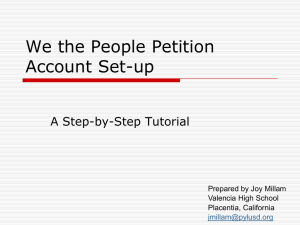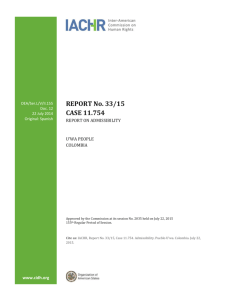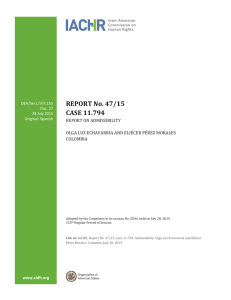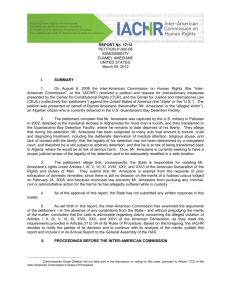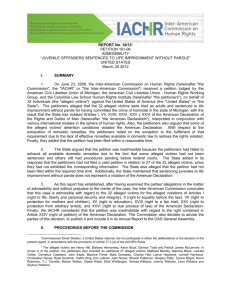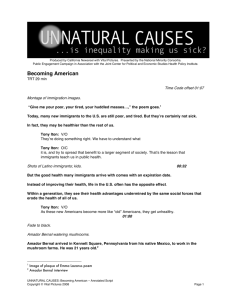Report No. 98/13 - Organization of American States
advertisement
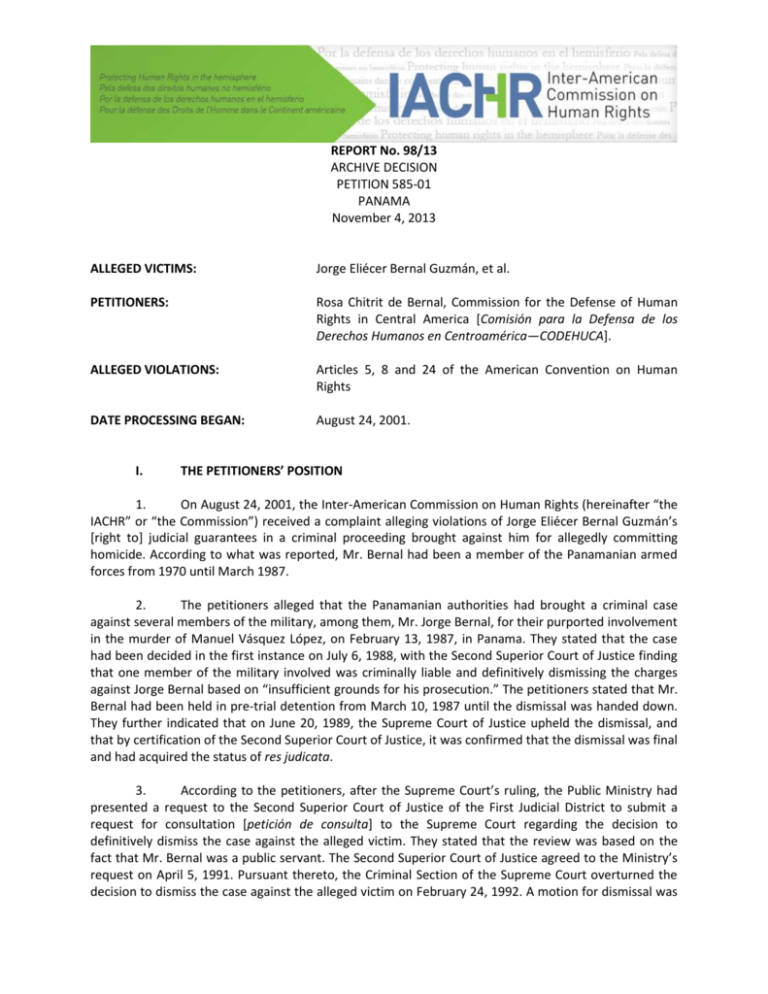
REPORT No. 98/13 ARCHIVE DECISION PETITION 585-01 PANAMA November 4, 2013 ALLEGED VICTIMS: Jorge Eliécer Bernal Guzmán, et al. PETITIONERS: Rosa Chitrit de Bernal, Commission for the Defense of Human Rights in Central America [Comisión para la Defensa de los Derechos Humanos en Centroamérica—CODEHUCA]. ALLEGED VIOLATIONS: Articles 5, 8 and 24 of the American Convention on Human Rights DATE PROCESSING BEGAN: August 24, 2001. I. THE PETITIONERS’ POSITION 1. On August 24, 2001, the Inter-American Commission on Human Rights (hereinafter “the IACHR” or “the Commission”) received a complaint alleging violations of Jorge Eliécer Bernal Guzmán’s [right to] judicial guarantees in a criminal proceeding brought against him for allegedly committing homicide. According to what was reported, Mr. Bernal had been a member of the Panamanian armed forces from 1970 until March 1987. 2. The petitioners alleged that the Panamanian authorities had brought a criminal case against several members of the military, among them, Mr. Jorge Bernal, for their purported involvement in the murder of Manuel Vásquez López, on February 13, 1987, in Panama. They stated that the case had been decided in the first instance on July 6, 1988, with the Second Superior Court of Justice finding that one member of the military involved was criminally liable and definitively dismissing the charges against Jorge Bernal based on “insufficient grounds for his prosecution.” The petitioners stated that Mr. Bernal had been held in pre-trial detention from March 10, 1987 until the dismissal was handed down. They further indicated that on June 20, 1989, the Supreme Court of Justice upheld the dismissal, and that by certification of the Second Superior Court of Justice, it was confirmed that the dismissal was final and had acquired the status of res judicata. 3. According to the petitioners, after the Supreme Court’s ruling, the Public Ministry had presented a request to the Second Superior Court of Justice of the First Judicial District to submit a request for consultation [petición de consulta] to the Supreme Court regarding the decision to definitively dismiss the case against the alleged victim. They stated that the review was based on the fact that Mr. Bernal was a public servant. The Second Superior Court of Justice agreed to the Ministry’s request on April 5, 1991. Pursuant thereto, the Criminal Section of the Supreme Court overturned the decision to dismiss the case against the alleged victim on February 24, 1992. A motion for dismissal was 2 presented against said ruling, but was denied on April 26, 1993. As a result, a new proceeding was brought against Mr. Bernal, in which, according to the petitioners, a series of irregularities were committed that impaired his right to defense and to be tried with due guarantees. 4. According to the petition, an appeal on grounds of unconstitutionality was lodged before the Supreme Court of Justice challenging the ruling of April 5, 1991, alleging that it violated the principle of double jeopardy [non bis in idem], as well as that of res judicata, enshrined in the Panamanian Constitution. Furthermore, they stated that an amparo action for constitutional guarantees was filed based on an arrest warrant issued for Mr. Bernal in relation to this new proceeding, contending that it had not been issued by the competent authority. The petitioners further stated that these appeals had been dismissed and the criminal proceeding went forward against Mr. Bernal, who had decided to leave the country. He was thus tried in absentia. . 5. The petitioners stated that on February 4, 1997, the Second Superior Court of Justice handed down a decision sentencing Mr. Bernal to 20 years in prison and that notice thereof was not given in a timely manner. They alleged that irregularities had been committed during the trial and that submission of evidence by Mr. Bernal’s defense counsel had been denied. In this regard, they stated that an appeal was filed against the aforementioned decision, but the appeal did not allow for a review of the merits of the case, rather, only the length of the sentence imposed. The Supreme Court of Justice ruled on this appeal on May 15, 1998, upholding the decision of February 4, 1997 in all its terms. . 6. When the petition was presented to the IACHR, it was argued that the alleged victim, together with his wife and children, were forced to leave Panama because that had been subject to “polítical persecution” by the Panamanian authorities. It was stated that Mr. Bernal had been granted political asylum in Guatemala and had then moved to Costa Rica, leading Panamanian authorities to request his extradition from this country. The petitioners contended that although he was a “fugitive from justice,” this was because he considered that the necessary conditions did not exist in Panama to be tried with the proper guarantees. They argued that this situation had forced Mr. Bernal to remain separated from his family and outside his country. II. THE STATE’S POSITION 7. The state alleged that the petition should be ruled inadmissible for failing to show violations of the American Convention and because domestic remedies had not been exhausted. The State contended that guarantees of due process had been respected in the criminal proceeding against Mr. Bernal, which is why it considered that it had no international responsibility as was reported in the petition. 8. As for the acts alleged to be violations, the State argued that the grounds for overturning the dismissal of Mr. Bernal’s case were in keeping with the Panamanian legal system. In this regard, the State asserted that the Legal Code in force at that time provided that decisions issued in proceedings against public servants should be consulted with the highest court, a necessary requisite for a decision to become final. Pursuant thereto, the State argued that the decision of February 24, 1992 was handed down in accordance with the law as the acts for which Mr. Bernal was tried had occurred when he held the rank of Captain in the Panamanian military forces. It further argued that the ruling in absentia was also in accordance with Panamanian legislation, bearing in mind that the proper intervention of the alleged victim’s defense counsel had also been ensured throughout the trial. 3 9. The State added that the petition did not describe acts violating the rights set forth under Articles 5 and 24 of the American Convention and that as the alleged victim was a fugitive from justice, he was not detained or in the custody of State authorities, or in a situation in which he could demonstrate potential impairments of his right to humane treatment that could be attributed to the State. The State likewise denied that it had provided Mr. Bernal differentiated treatment that was to his detriment during the criminal proceeding brought against him. 10. As for the exhaustion of domestic remedies, the State indicated that two extradition requests had been issued for Mr Bernal in the case related to the acts subject to this petition and in another criminal case brought against him. It further indicated that as Mr. Bernal was a fugitive from justice, the Panamanian authorities had not been able to formally provide him notice of the definitive decision in the proceeding against him. Nevertheless, the State asserted that according to information contained in the case file with the Commission, it could be shown that Mr. Bernal was aware of his conviction. The State also indicated that other remedies were available under domestic legislation to challenge the effects of the decision of February 4, 1997, such as remedy of appeal, appeal to set aside proceedings, appeal for review and the mandatory consultation process. III. PROCESSING BY THE IACHR 11. On August 24, 2001, the IACHR received the petition and registered it under number 585-01. The petitioners presented additional information on September 26, 2001, May 28, 2002 and June 28, 2005. 12. On December 6, 2007, the Commission sent the pertinent parts of the petition to the Panamanian State, providing it a two-month deadline to submit its comments, in keeping with Article 30 of the IACHR’s Rules of Procedure. The State presented its response on April 25, 2008. On May 1, 2008, the Commission forwarded said information to the petitioners, requesting their comments. On April 17, 2009, the Commission reiterated to the petitioners its request for information. On March 14, 2010 and December 21, 2010, the Commission once against requested that the petitioners submit their comments on the information provided by the State, informing them that the IACHR could archive the petition if it failed to receive information within a month. IV. GROUNDS FOR THE DECISION TO ARCHIVE 13. Both Article 48(1)(b) of the American Convention on Human Rights, as well as Article 42(1) of the IACHR’s Rules of Procedure provide that, as part of the petition’s processing, once information is received or the deadline set has lapsed without receiving information, the IACHR will verify whether the grounds that gave rise to the petition exist or subsist. If the grounds do not exist or subsist the Commission will order the case to be archived. 14. In the instant case more than 7 years have gone by since the last information was received from the petitioners. Despite requests for information made on May 1, 2008, April 17, 2009, March 14, 2010 and December 21, 2010, to date the IACHR has not received the information needed to update the petition’s processing, as was requested. 15. As a result, the Commission does not have the necessary elements to determine whether the grounds on which the original complaint was founded subsist nor to make a final decision on the violations of human rights alleged. In light of the foregoing, the Commission has decided, 4 pursuant to Article 48(1)(b) of the Convention and Article 42 of its Rules of Procedure, to archive this petition. 16. Under these circumstances and given that insufficient information is available to adopt a decision about the admissibility or inadmissibility of the petition, the IACHR has decided to archive it in keeping with Article 48(1)(b) and 42(1) of its Rules of Procedure. Done and signed in the city of Washington, D.C., on the 4th day of the month of November 2013. (Signed): José de Jesús Orozco Henríquez, President; Tracy Robinson, First Vice-President; Felipe González, Dinah Shelton, Rodrigo Escobar Gil, and Rose-Marie Belle Antoine, members of the Commission.
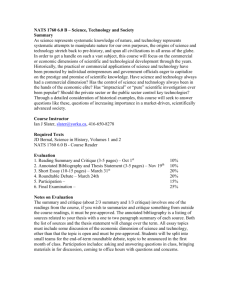

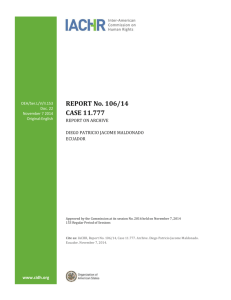
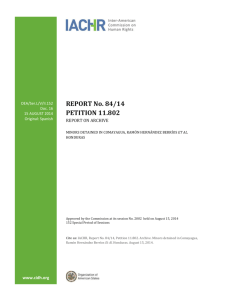

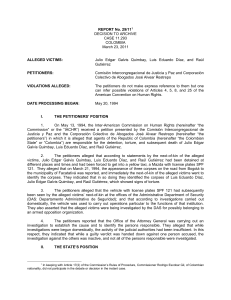

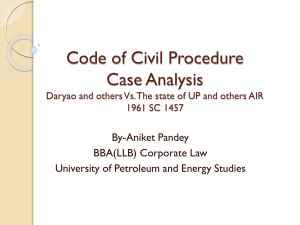
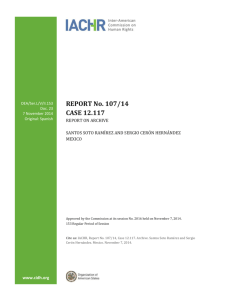
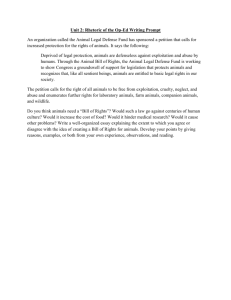
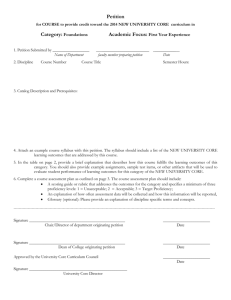
![REPORT No. 28/11[1] - Organization of American States](http://s3.studylib.net/store/data/007454871_1-d11bce2b7f6878531a2bda40061c9e5a-300x300.png)

